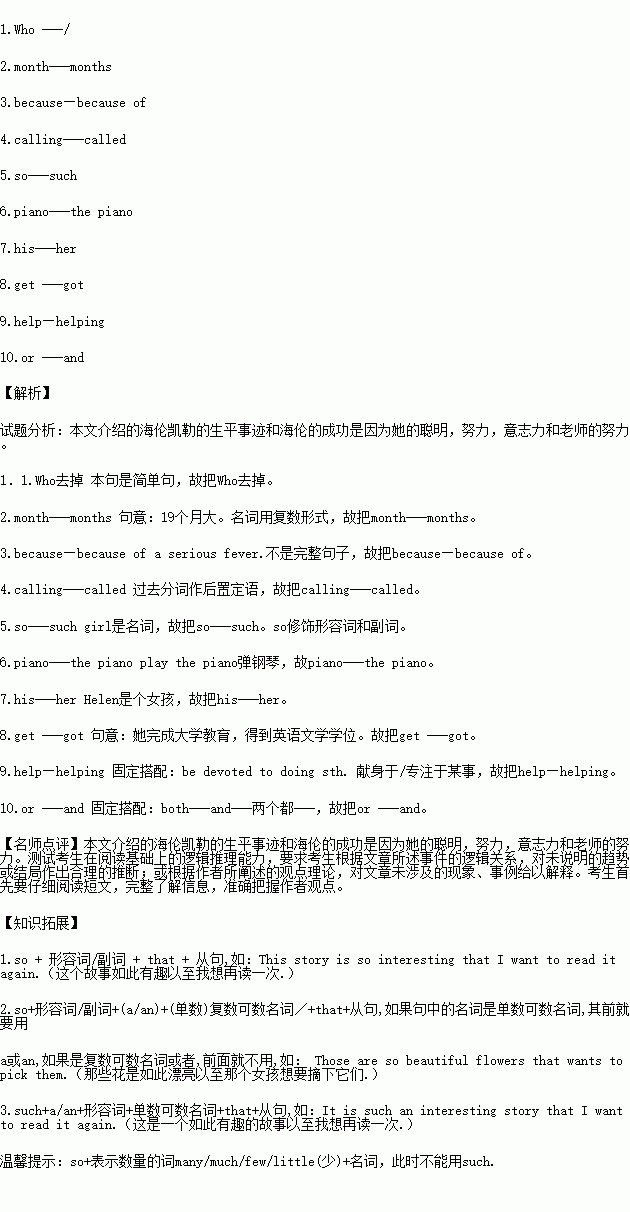题目内容
假定英语课上老师要求同桌之间交换修改作文,请你修改你同桌写的以下作文。文中共有10处语言错误,每句中最多有两处。错误涉及一个单词的增加、删除或修改。
增加:在缺词处加一个漏字符号(∧),并在其下面写出该加的词。
删除:把多余的词用斜线(\)划掉。
修改:在错的词下划一横线,并在该词下面写出修改后的词。
注意:1. 每处错误及其修改仅限一词。
2. 只允许修改10处,多者(从第11处起)不计分。
Helen Keller who was born in America in June, 1890. Her birth brought much happiness to her parents. But when she was 19 month old, she became deaf and blind because a serious fever. Living in a world where she could see and hear nothing, she almost lost the hope to live. However, at seven, she met her teacher, calling Anne Sullivan. At first, it was hard for Anne to teach so a disabled girl. Helen’s strong will and cleverness together with Anne’s skill and patience finally helped to create a wonder. Helen learned to speak, read and even play piano. Later, she finished his college education and get a degree in English literature. Helen wrote many books, of which “The Story of My Life” was the most famous. Helen was also devoted to help other disabled people like herself. She moved both the USA or the world.
 天天向上一本好卷系列答案
天天向上一本好卷系列答案 小学生10分钟应用题系列答案
小学生10分钟应用题系列答案
